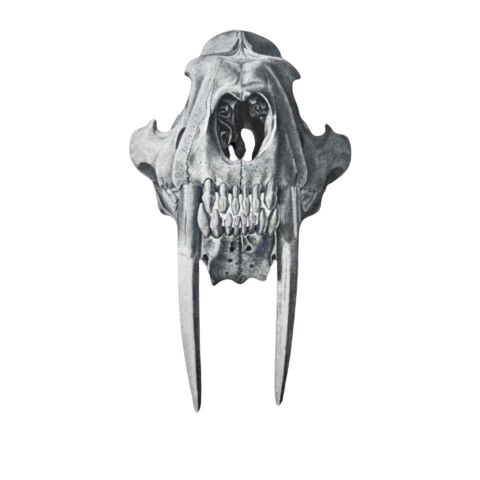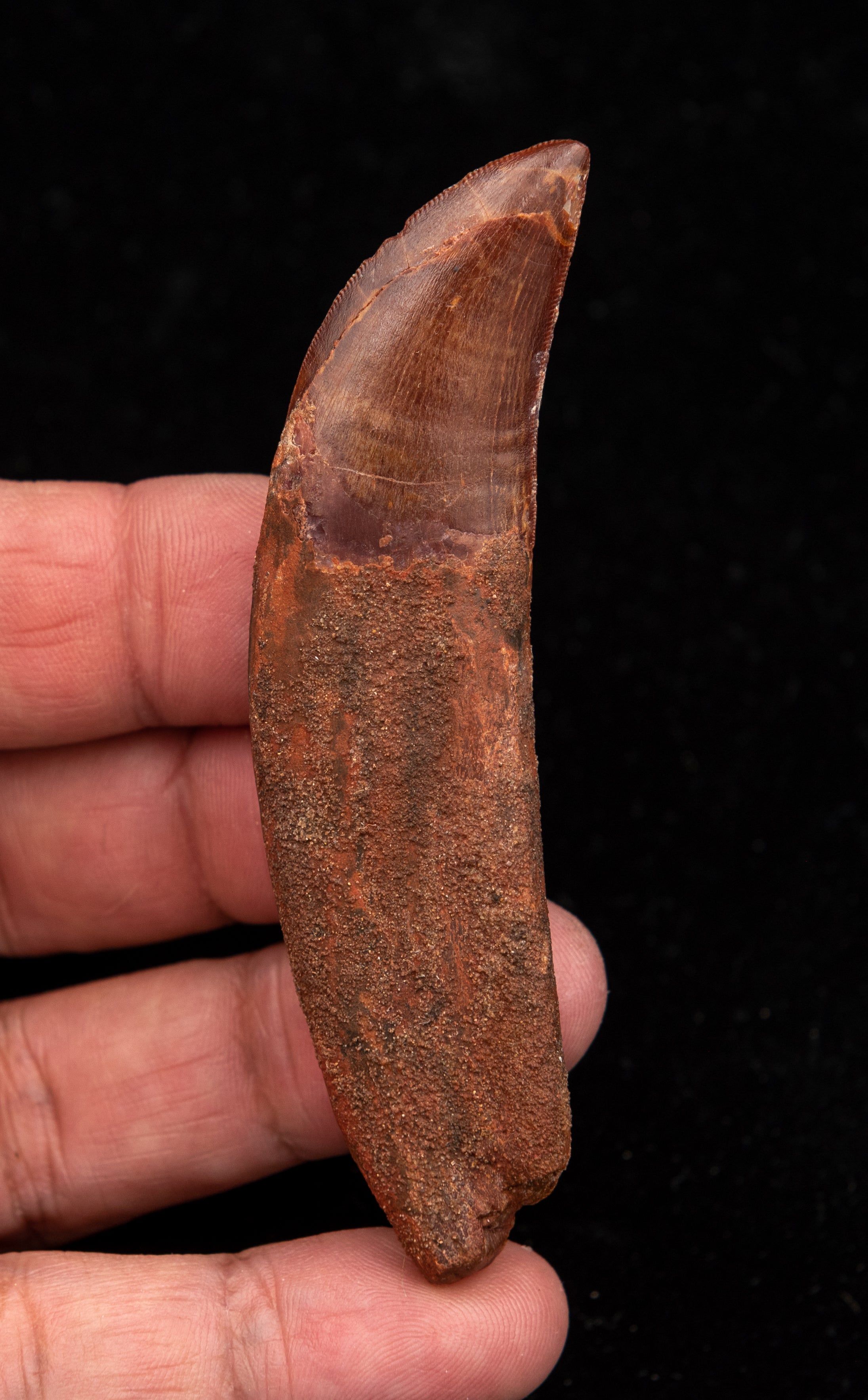
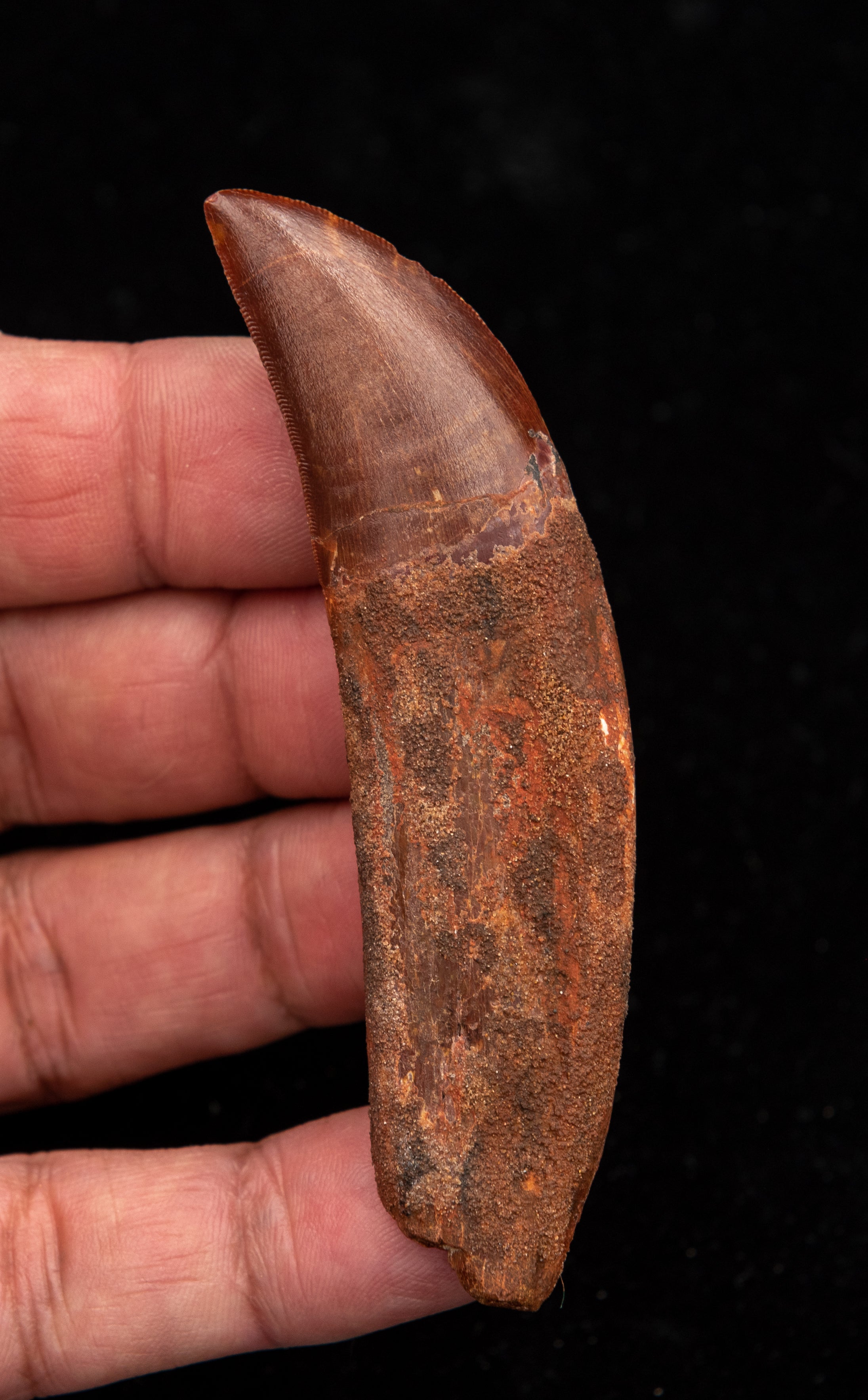
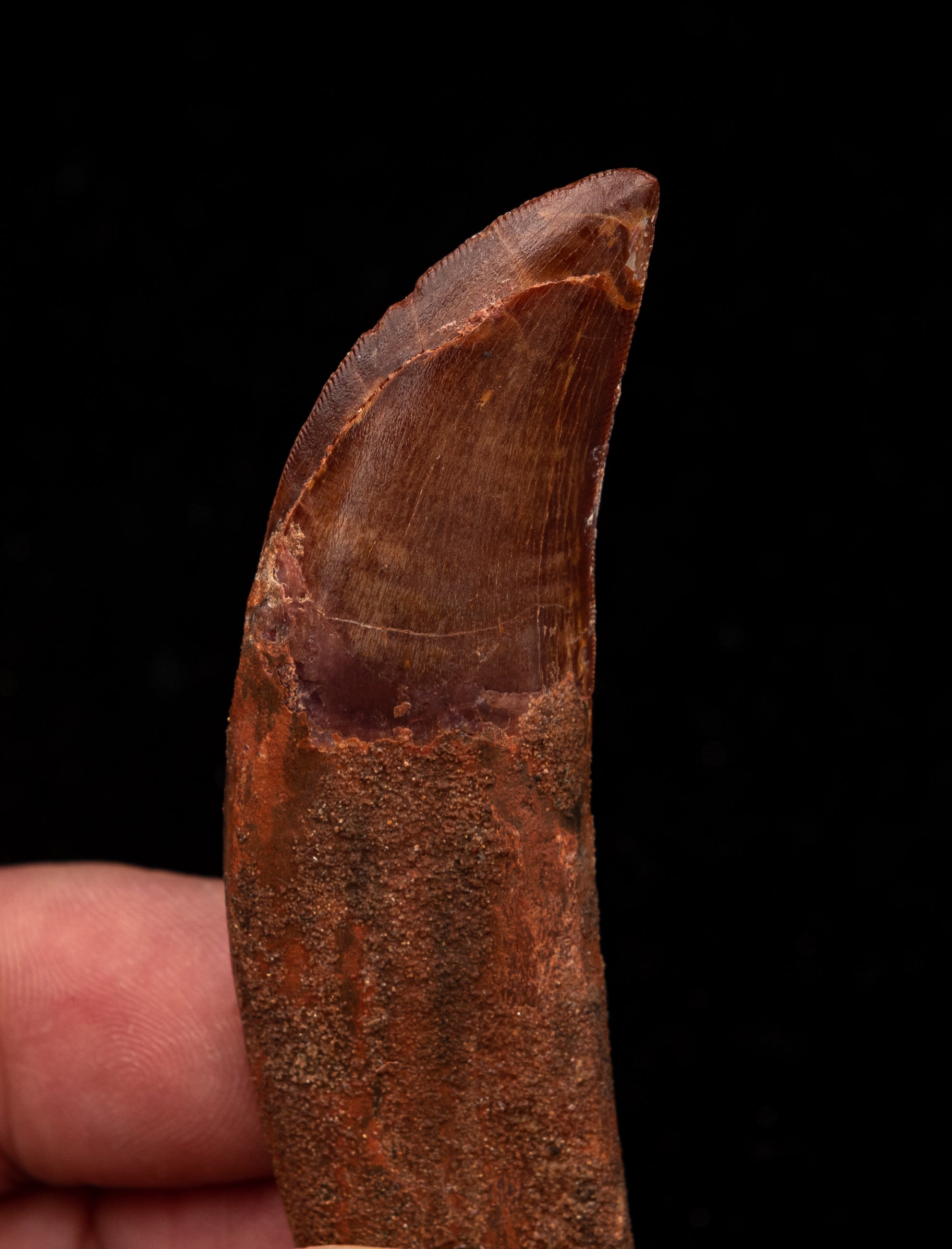
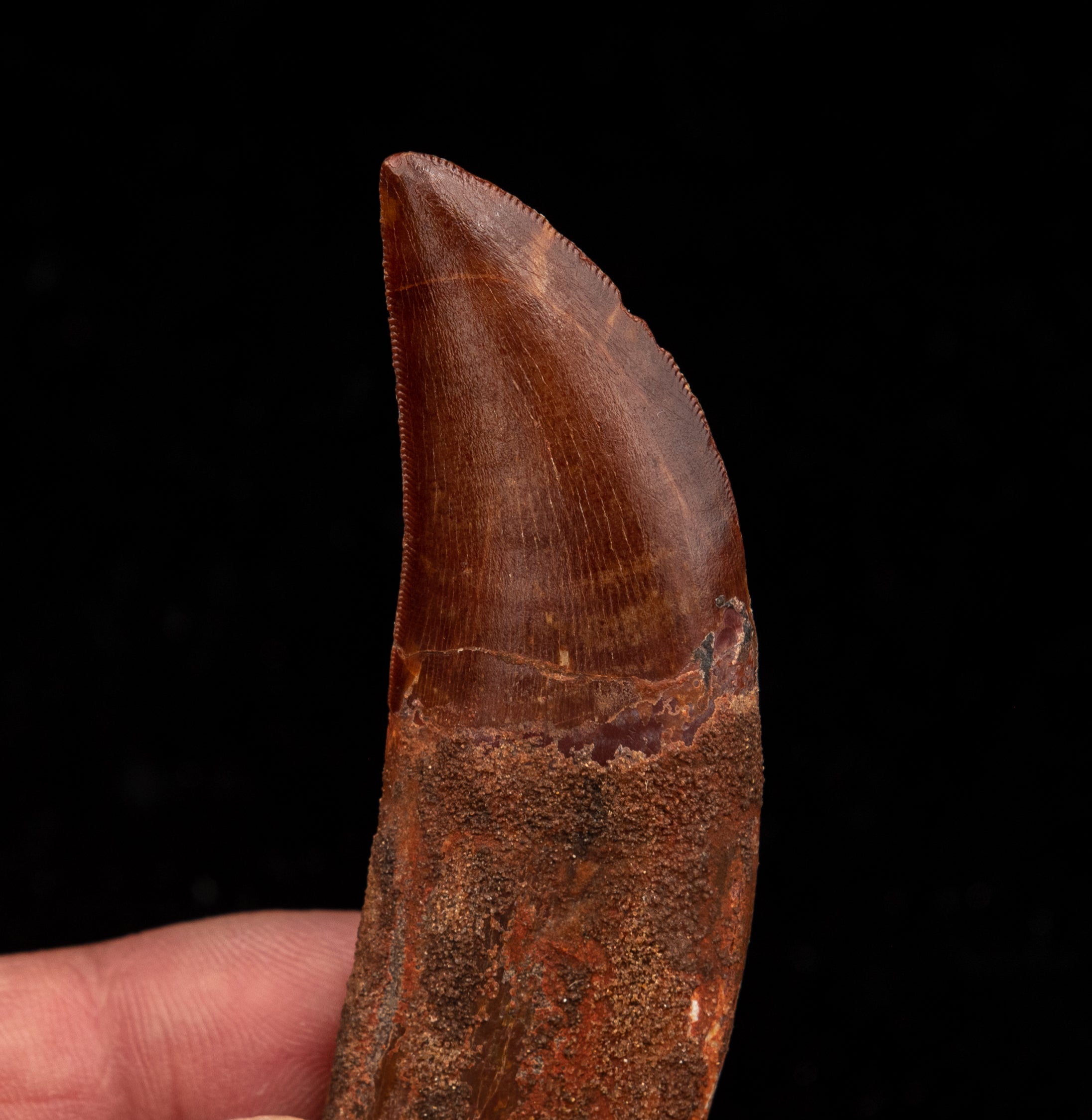
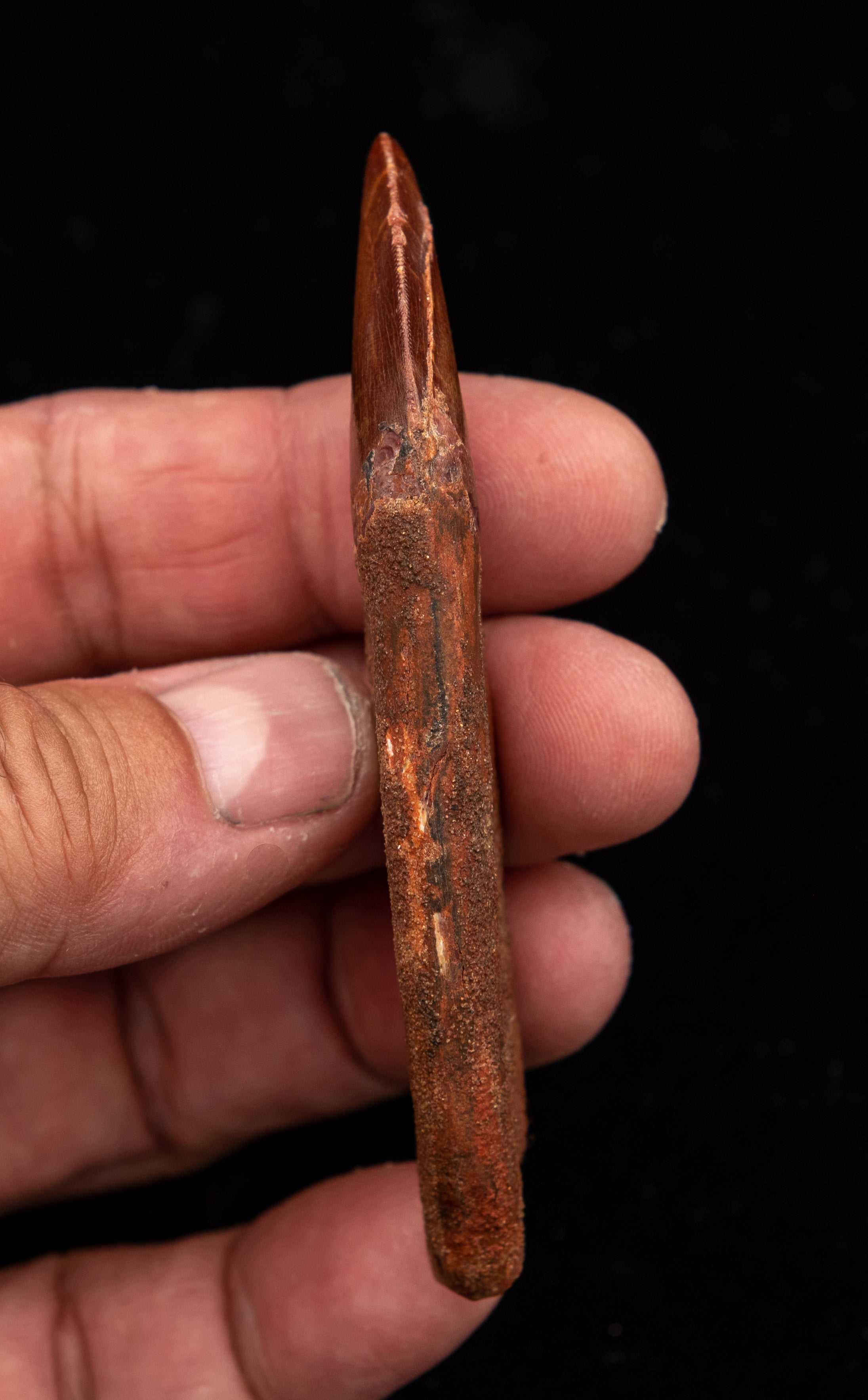
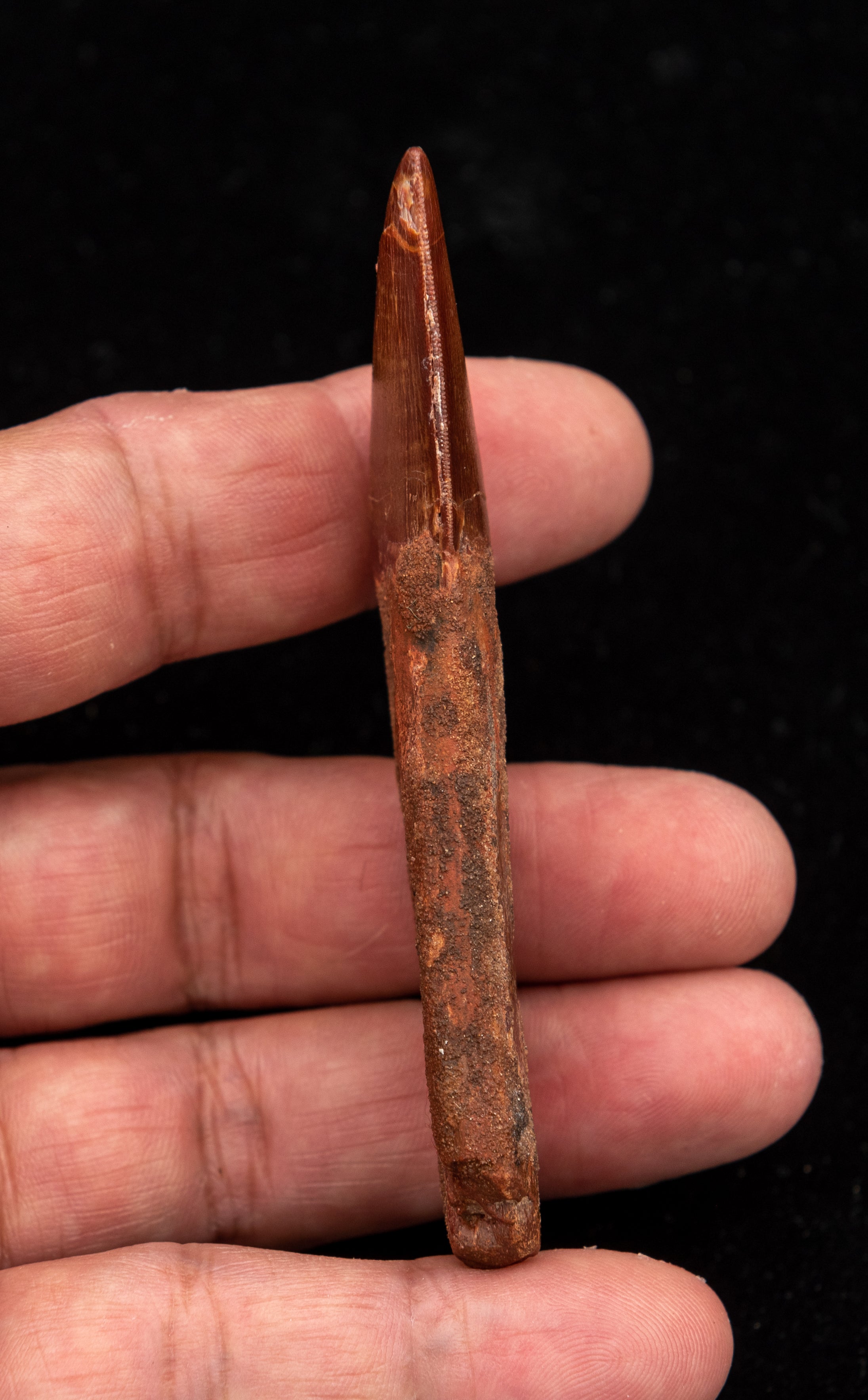
ROOTED Carcharodontosaurus Tooth not T. rex. Theropod Dinosaur
Here is a quality Carcharodontosarid tooth from the upper Cretaceous of the Kem Kem Group in Morocco. This is a fantastic, rooted tooth with only minor crack fill. The root has a thin layer of hard matrix that did not come off easily with the micro blaster.
The Carcharodontosaurus is a fascinating dinosaur known for its size and ferocity, hailing from the Kem Kem beds of Morocco. Here's a detailed description:
-
Era and Age: The Carcharodontosaurus lived during the Late Cretaceous Period, which spanned from about 100.5 to 66 million years ago. Specifically, it is believed to have existed approximately 95-100 million years ago, during the Cenomanian stage of the Late Cretaceous.
-
Habitat: The Kem Kem beds, where Carcharodontosaurus fossils have been found, were part of a large river system with a tropical, wet climate. This region, during the Cretaceous period, would have been a lush environment with a diverse ecosystem, supporting a variety of both aquatic and terrestrial life.
-
Diet: As a theropod, the Carcharodontosaurus was a carnivore. It likely preyed on large dinosaurs and possibly competed with other large predators of its time, like Spinosaurus, for food. Its size and powerful jaws suggest it could take down some of the largest herbivores of its era.
-
Teeth: One of the most notable features of the Carcharodontosaurus is its teeth. The teeth were large, serrated, and blade-like, measuring up to 8 inches in length. They were designed for slicing through flesh, indicating a predatory lifestyle. The serrations on the teeth were fine and closely packed, similar to the teeth of a shark, which is why its name means "shark-toothed lizard".
-
Size and Physical Description: Carcharodontosaurus was among the largest theropods, comparable in size to Tyrannosaurus rex. It could grow up to 44 feet in length and possibly weighed between 6 to 15 tons. It had a massive skull, powerful legs, and relatively short arms.
-
Behavior: While specific behavior patterns are hard to determine from fossils alone, its physical attributes suggest that it was a dominant predator of its environment. It likely used ambush tactics, relying on its powerful jaws and sharp teeth to quickly incapacitate its prey.
The Carcharodontosaurus, with its impressive size and formidable hunting capabilities, was undoubtedly a top predator in the ecosystems of the Late Cretaceous North Africa.
Species
Carcharodontosaurus sp.
AGE
Cretaceous
LOCATION
Kem Kem Basin, Morocco
Size
3.58"
Choose options






